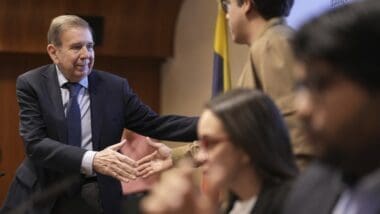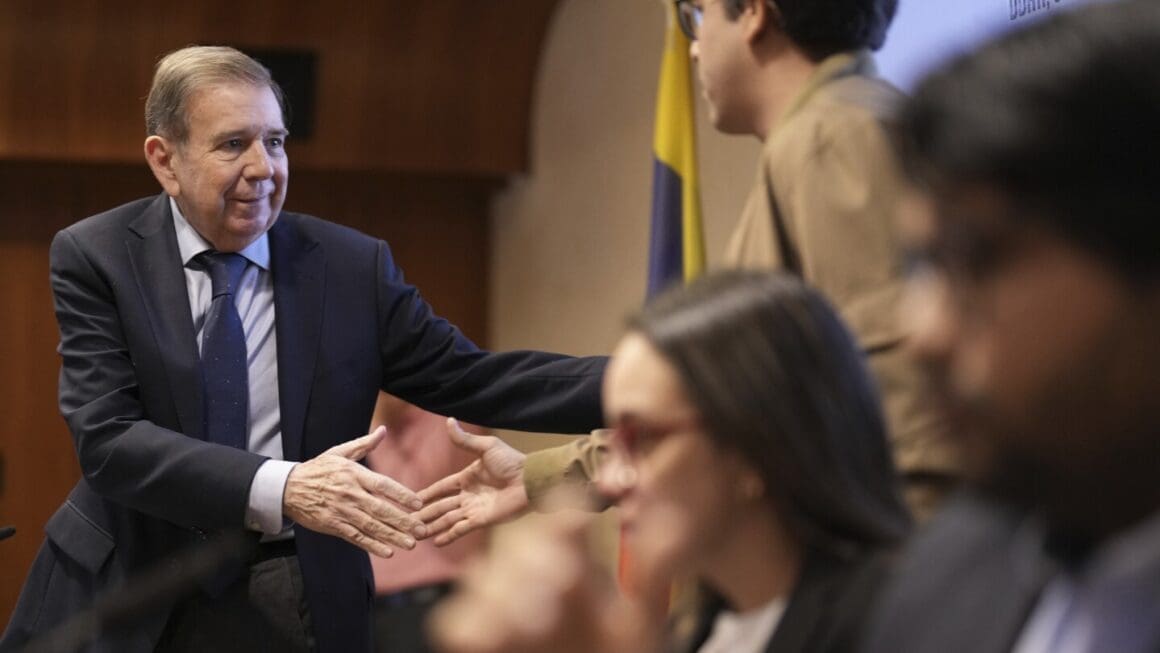In a surprising turn of events, Venezuela’s opposition has announced a shift toward a flexible timeline for the much-anticipated government transition, initially set for next January. This adjustment comes amid the continued exile of Edmundo González, the opposition’s presidential candidate, and the secretive absence of leader Maria Corina Machado within Venezuela. Both leaders remain targets for arrest by President Nicolás Maduro’s government due to their outspoken critique of the regime’s conduct post-election.
Facing mounting challenges, the opposition coalition’s initial insistence on a swift transfer of power has softened as it grapples with the complexities of the current political landscape. Despite having substantial international backing, including from the United States, and claiming victory over Maduro with twice as many votes as reported by the government, the opposition faces significant hurdles to enforce this outcome. The ruling party, loyal to Maduro, has preemptively declared him the winner, a move that sparks international skepticism given the lack of detailed vote counts provided by the electoral authorities.
In a recent event streamed from Madrid, Machado highlighted the intense repression opposition members have endured since the disputed election. “On January 10, the one who is against the wall is really Maduro, not us,” Machado boldly stated, emphasizing the precarious position she believes Maduro is in. However, she offered no specifics on potential negotiations, only reiterating the pressing demand for the release of hundreds detained for their opposition to the government.
The political drama intensifies as González, who fled to Spain to avoid arrest related to the publication of election tallies, still holds on to the hope of assuming his presidential mandate. “I see myself assuming the position for which I was voted by the majority of Venezuelans on July 28,” he asserted during his address in Madrid, though when this return might happen remains unclear.
As the political tension simmers, anti-government protests within Venezuela have met with severe crackdowns. Since the contentious election, government forces have arrested over 2,200 individuals, stifling the opposition’s ability to mobilize mass demonstrations. This environment of fear has led to public caution in both speech and social media expression, affecting everyday Venezuelans as well as those deeply involved in the political resistance.
Despite these adversities, Machado contends that the movement continues to gain traction, even as organized rallies remain on hold. “The voices that today want us to believe that it is not possible to enforce [the election’s result] will be wrong again,” she declared, urging supporters to maintain their resolve in the face of government pushback.
Meanwhile, the international community watches closely, weighing the potential outcomes of this political standoff. With Maduro’s government extending an official invitation for his swearing-in and the opposition’s claim bolstered by externally gathered voting data, the next steps for Venezuela’s political future remain uncertain.
As Venezuela’s opposition recalibrates its strategy, the country’s political horizon is fraught with uncertainty and tension. Yet, the determination of leaders like González and Machado offers a glimmer of hope for change, as they navigate a path fraught with state repression and international scrutiny. This fluid situation continues to unfold, with the broader implications for Venezuela hanging in the balance.
Source: Apnews














